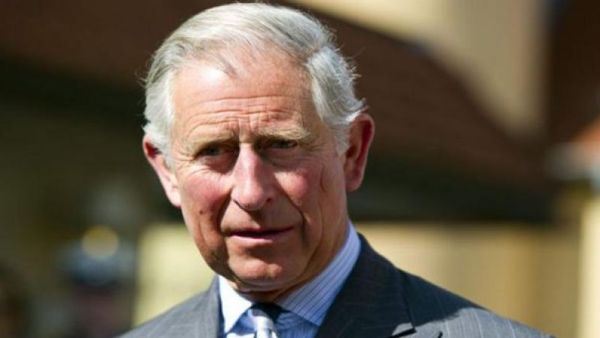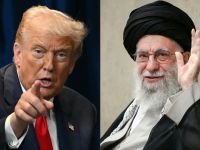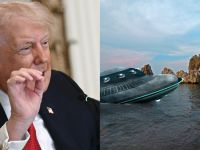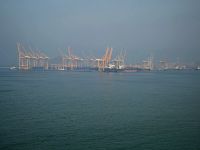- A letter penned by Prince Charles in 1986 reveals his belief that the exodus of European Jews helped cause unrest in the Middle East
- He then expresses the hope a U.S. President will stand up to the American "Jewish lobby"
- "Jewish lobby" suggests wealthy Jews operate behind the scenes to exercise undue influence over government policy, and is considered an antisemitic term
- "This letter clearly stated that these were not the Prince’s own views (...) but represented the opinions of some of those he met during his visit," a spokesperson said
Prince Charles was fiercely criticized last night after it emerged he once urged the U.S. to "take on the Jewish lobby" – and blamed "the influx of foreign Jews" for causing unrest in the Middle East.
Thee incendiary comments are contained in a letter in which the Prince lays bare his thoughts on one of the world’s most bloody disputes.
Writing to his close friend Laurens van der Post in 1986, the Prince makes a startling assessment of the Arab-Israeli conflict. He argues it was the exodus of European Jews in the middle of the last century that "helped to cause the great problems".
He goes on to say terrorism in the region will only end when its causes are eliminated.
He then expresses the hope a U.S. President will find the courage to stand up to the American "Jewish lobby".
The term "Jewish lobby" is considered by many to be anti-Semitic – suggesting wealthy Jews in the U.S. operate behind the scenes to exercise undue influence over government policy.
Other high-profile figures have been heavily criticized for using the term.
While the letter is inflammatory, there is no suggestion Charles holds anti-Semitic views.
He has many prominent Jewish friends and in 2013 became the first Royal to attend a chief rabbi’s inauguration ceremony. In a speech that year, he expressed concern at the apparent rise of anti-Semitism in Britain.
- A Century after Balfour: A Look Back On Its Impact Today
- 'We Should Assume Responsibility as British People for What Britain Did,' Former British Envoy to Jerusalem
In the past, it has been reported that the Prince is privately critical of U.S. policy in the Middle East, with one diplomatic source accusing him of having "fairly dodgy views on Israel".
At the same time, he is seen as a defender of Islam, with one historian noting that no other major Western figure has as high a standing in the Muslim world.
It has also been suggested he has pro-Palestinian leanings, a perception the letter appears to support.
The Prince’s candid letter surfaced in a public archive. It was written on Nov. 24, 1986, immediately after an official visit the then 38-year-old Prince made to Saudi Arabia, Bahrain, and Qatar with Princess Diana.
He notes the tour was "fascinating" and that he learned "a lot about the Middle East and Arab outlook".
He goes on: "Tried to read bit of Koran on way out and it gave me some insight into way they [Arabs] think and operate. Don’t think they could understand us through reading Bible though!"
"Also I now begin to understand better their [Arabs’] point of view about Israel. Never realized they see it as a U.S. colony."
"I now appreciate that Arabs and Jews were all a Semitic people originally and it is the influx of foreign, European Jews (especially from Poland, they say) which has helped to cause great problems. I know there are so many complex issues, but how can there ever be an end to terrorism unless the causes are eliminated?"
"Surely some U.S. president has to have the courage to stand up and take on the Jewish lobby in U.S.? I must be naive, I suppose!"
The Prince’s reference in the letter to the influx of European Jews also caused dismay.
It is not clear if he is referring to immigration before or after the Second World War, or both.
- Israeli Forces Suppress Palestinian Protest Against the Balfour Document
- UK's Boris Johnson: Proud of Balfour and it's 'Incontestable' Moral Goal
Earlier this month, Britain marked the centenary of the Balfour Declaration, the document that paved the way for the state of Israel, with a gala dinner in London attended by Theresa May and Israeli prime minister Benjamin Netanyahu.
The Prince called the centenary a "deeply significant moment," adding "a great deal remains to be done if we are to bring about a just and lasting peace for Israel and her neighbors".
In 1993, Charles delivered what was then considered to be the most pro-Islamic speech ever made by a member of the Royal Family.
"Islam can teach us today a way of understanding and living in the world which Christianity is poorer for having lost," he said. "These two worlds, the Islamic and the Western, are at something of a crossroads in their relations. We must not let them stand apart."
In 2003, it was reported the Prince had not been to the U.S. for the previous six years on Foreign Office advice, largely because of his criticism of U.S. policy in the Middle East.
A diplomatic source said at the time the Prince had "in American terms and international terms, fairly dodgy views on Israel. He thinks American policy in the Middle East is complete madness."
In 2007, leaked emails between senior Clarence House staff put Charles at the center of a row about the Royals’ attitude towards the Jewish state.
Exchanges between Sir Michael Peat, the Prince’s then principal secretary, and Clive Alderton, Sir Michael’s deputy, contained apparently disparaging remarks about Israel.
Earlier that year, the Israeli embassy invited the two senior aides to Israel for a four-day visit as guests of the Knesset, the Israeli parliament.
Sir Michael initially replied enthusiastically, saying: "The invitation is hugely appreciated and Clive and I would love to come."
- More than Balfour: 6 Other One-Sided Deals that Dismantled the Middle East
- 'Sorry for Balfour' British Activists Apologize on UK's Behalf with March from Europe to Palestine
But a month later, there was an exchange of emails between Alderton and Sir Michael that were apparently accidentally copied to the outgoing Jewish ambassador.
In the emails, Alderton complains of being "pursued" by the ambassador and says: "Safe to assume there is no chance of this visit ever actually happening?"
"Acceptance would make it hard to avoid the many ways in which Israel would want HRH [Prince Charles] to help burnish its international image. In which case, let’s agree a way to lower his expectations."
Over the years, the Prince has forged a close relationship with the Saudi royal family. But no Royal has ever visited Israel in an official capacity. Officials say it is because there is no permanent peace deal in the region.
Earlier this year, however, Charles was penciled in to visit the country to mark the Balfour centenary. But the idea was vetoed by the Foreign Office amid claims it would upset Israel’s Arab neighbors.
Last night a Clarence House spokeswoman said of the 1986 letter: "This letter clearly stated that these were not the Prince’s own views about Arab-Israeli issues but represented the opinions of some of those he met during his visit which he was keen to interrogate."
"He was sharing the arguments in private correspondence with a long-standing friend in an attempt to improve his understanding of what he has always recognized is a deeply complex issue to which he was coming early on in his own analysis in 1986."
"Over the years, the Prince has continued his study of the complex and difficult themes he referenced here. He has built a proven track record of support for both Jewish and Arab communities around the world and has a long history of promoting interfaith dialogue and cultural understanding."
This article has been adapted from its original source.








